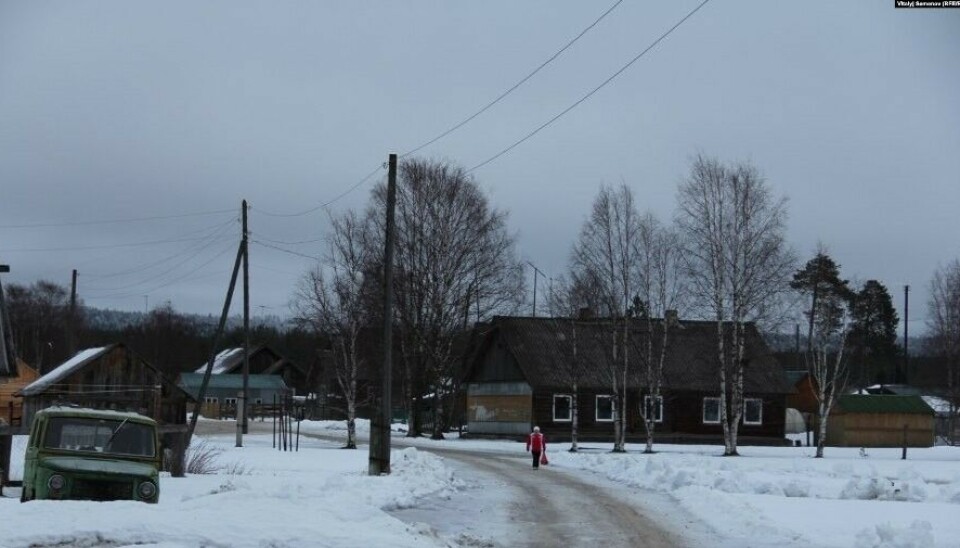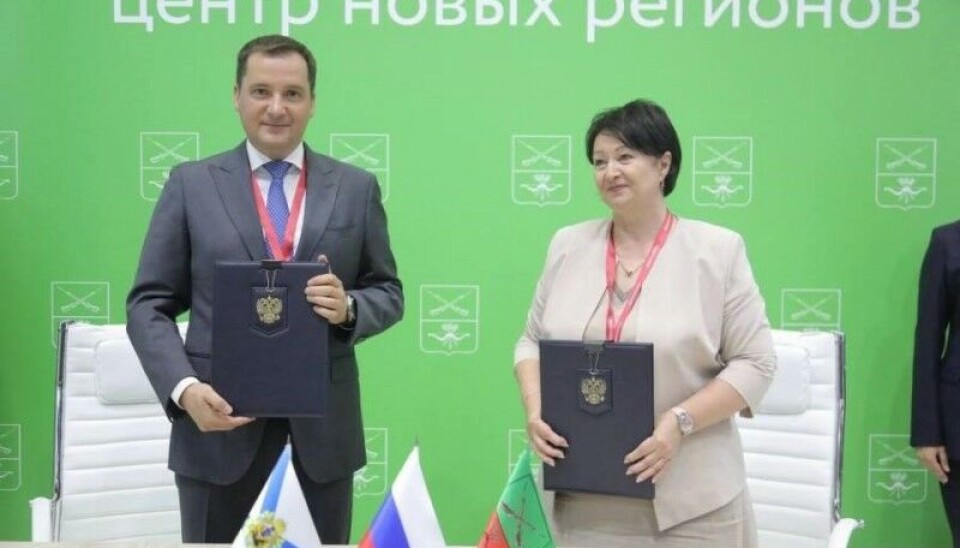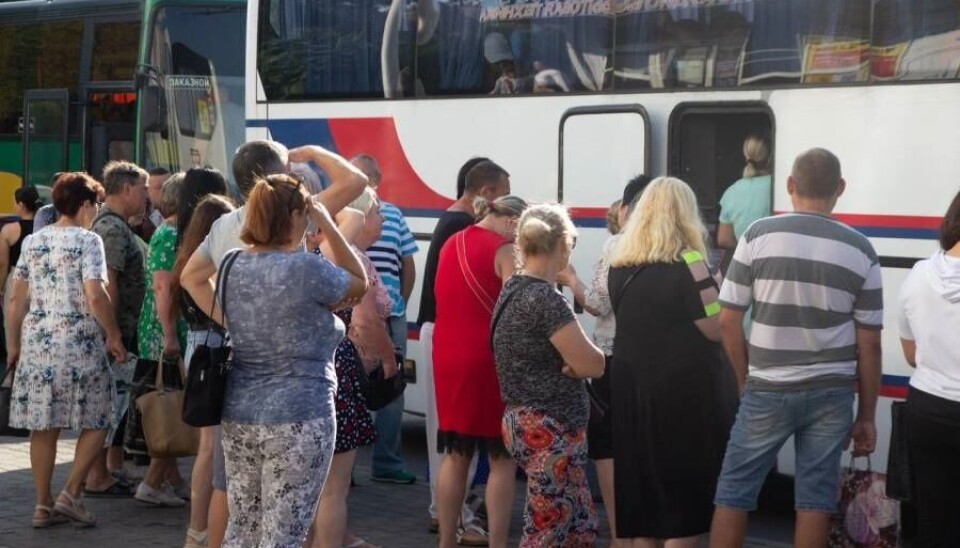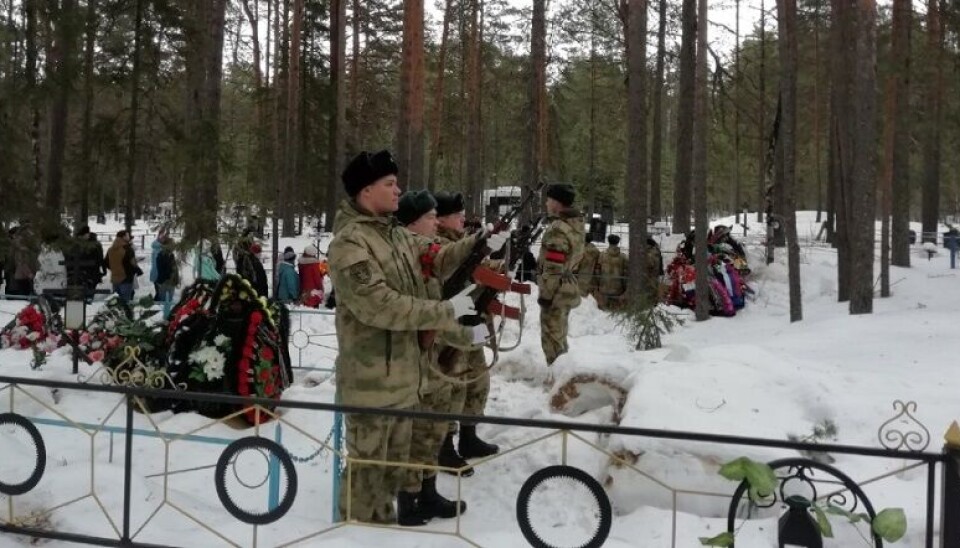
Hundreds of millions for war and its aftermath. The cost of the ‘special military operation’ for Russian northerners
Assistance to the “sponsored” republics, payments to the mobilized and their families and the purchase of housing for Ukrainian refugees make up an incomplete list of expenses incurred by Russian regions because of the war in Ukraine. The Barents Observer has calculated that the northern regions earmark hundreds of millions of rubles in their deficit budgets for the “special military operation”.
“Sponsors are helping Melitopol to prepare for the winter period” was a headline that appeared on the official social media page of the occupation authorities of the Ukrainian city in the middle of July. The amount was also mentioned: 800 million rubles. For comparison, it’s about as much as the Arkhangelsk region allocated in its 2023 budget for the construction and reconstruction of drinking water supply facilities.
The head of the region, Alexander Tsybulsky, said that the republic took patronage over Melitopol. “We will share!”, the governor said on his official page. However, the volumes of “sharing” were not advertised. This was expected as this is a huge amount for the deficit budget of the northern region. But this is far from the only expense associated with the war and its aftermath. Residents of the Arkhangelsk region and other regions would certainly be interested in where their taxes go to. The Barents Observer will help sort this out.

Russian officials from time to time speak about how they help residents of the occupied regions. For example, the same Arkhangelsk region organized a trip for children from Melitopol to Evpatoria. According to the regional government, 300 children were taken on vacation. The cost of the tour has not been reported.
However, it is known how much money Murmansk officials spent on a similar operation. Their intention was to send children from Primorsk (Zaporozhye region of Ukraine) to the resorts of the Krasnodar region. It should be noted that Primorsk, located on the shores of the Sea of Azov, is a resort itself but it is regularly shelled because of the war.
As The Barents Observer has found out, sending Ukrainian children from one sea to another cost the budget of the Murmansk region 13.5 million rubles. The auction for organizing the trip was posted on the State Procurement website. 59 children from Primorsk will be taken to Gelendzhik while another 179 will travel to the Tuapse area.
According to the contract, transportation will be carried out by buses. The route will have to be laid through the territory which is also regularly shelled. At the same time, the terms of reference emphasize that the distance from the camp buildings to the sea should be no more than 500 meters, and the route itself should be safe. The document says nothing about the safety of the trip to the camp.
The organizer of the auction is the Laplandia education centre owned by the Murmansk regional government. Among other things, it is engaged in civil-patriotic education and collaborates with the Yunarmiya (Youth Army) and the new pioneers, the Movement of the First.

13.5 million is peanuts compared to other expenses incurred by the regions. The Arkhangelsk region has allocated a quarter of a billion rubles for one-off payments to military personnel, members of the National Guard and the mobilized in its 2023 budget. Another 40 million is set aside for payments to those who decide to sign a contract with the army.
A similar expenditure item has been found in the budget of the Murmansk region: 123.5 million rubles for one-off payment to the National Guard and contract soldiers going to war in Ukraine.
The budget of the Nenets Autonomous Okrug has an expenditure item titled “Additional measures of social support in connection with the conduct of the special military operation.” 89 million rubles is set aside for these purposes. It is not clear what the “social support measures” are – whether these are payments to the military, or their families, or refugees from Ukraine. After all, money is also spent on this, and these are considerable amounts for regional budgets.
For example, Karelia has allocated 64.5 million rubles for the purchase of residential premises to those coming from Kherson and part of the Kherson region “who were forced to leave their place of permanent residence.” Another 2 million is set aside for the “acquisition of property” for the same category of people, while 1.2 million will be spent to reimburse the costs of medical organizations that will provide assistance to refugees.
The Arkhangelsk region also spends money on refugees from the Kherson region. It’s almost 83 million rubles. The documents say nothing about who’s to blame for why these people left their homes.
The Arkhangelsk region has allocated 27 million rubles to support the children of law enforcement and military personnel, volunteers and contract soldiers. This money will be spent on free hot meals in schools and free attendance at kindergartens. In Karelia, 8.3 million rubles will be spent on monthly allowances to the children of killed soldiers.

There are other expenses associated with the war in Ukraine. The authorities in Zaozersk, Murmansk region, are going to build a stele commemorating those “killed in the special military operation”. It will cost the residents of the region 4.5 million rubles. The region has allocated another 1.8 million for the renovation of “support centers for the families of the mobilized and participants of the special military operation”. The amounts are small, but this would be enough, for example, for two apartments for those who lost their housing.
Almost 6 million rubles will be spent on the improvement of a military burial at the Mironova Gora cemetery in Severodvinsk, Arkhangelsk region. The auction to this effect is posted on the State Procurement website. The work will be carried out as part of the project “Perpetuating the memory of those who died defending the Fatherland”. However, according to the documentation, part of the money will be spent on the arrangement of the graves of nine soldiers killed in Ukraine.

Not all the costs of the war can be “seen”. Here the head of Karelia talks about the shipment of construction supplies to the city of Vasilyevka in the Zaporizhzhia region. We have found no mention of either Zaporizhzhia or any other patronage assistance in budget documents. However, there’s been a marked increase in the so-called reserve funds.
The reserve fund in the 2021 Karelia budget was 130 million rubles, of which 100 million was set aside for emergency response. The reserve fund for 2022 was 150 million, again with 100 million for emergency response. It’s worth mentioning that the budget was adopted at the end of 2021 when no one knew about the coming war.
The reserve fund for 2023 is 1.5 billion rubles. Of these, we still see the familiar 100 million earmarked for emergency response. Then, what is the remaining 1.4 billion for?
An indirect answer to this question can be found in the investigation by the Bumaga (Paper) news outlet. The journalists found out that the mayor’s office of St. Petersburg finances the restoration of Mariupol destroyed by Russian troops, and takes money for this from an overgrown reserve fund. The Barents Observer cannot claim that the rest of the Russian regions are doing the same. However, for example, the reserve fund in the 2021 Arkhangelsk region budget was 200 million rubles. The figure remained unchanged in the 2022 budget (there was no war when the budget was adopted) but in 2023 it was increased to 658 million. The reserve fund grew by almost half a billion rubles; it can be assumed that part of these funds will be spent on things that officials will not want to report to the population.
Governors try not to talk about the volume of expenses associated with the war and its aftermath. The array of unresolved problems in the regions is huge: low wages, dilapidated housing, lack of sewage treatment facilities, bad roads… One of the latest Karelian news is that the capital of the region has a growing number of schools where children have to study in two shifts. The Karelian lawmaker Emilia Slabunova reported this on her Telegram channel. In February, she was fined for saying that in order to protect the rights and interests of children their fathers and brothers need to be alive, and that taxes should go to the construction of schools rather than military operations; the court found Slabunova guilty of discrediting the Russian army.















